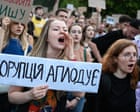
In a series of significant geopolitical and domestic developments, recent events have underscored ongoing challenges and opportunities across Europe. In particular, the European Union has reiterated its stance on critical reforms in Ukraine, while UK diplomatic figures urge a pivotal recognition of the Palestinian state. In the realm of organized labor, shifts in union leadership have highlighted participation challenges, and discussions on sustainable energy initiatives have gained momentum.
The European Union has taken a firm yet supportive approach toward Ukraine’s path to potential membership. European Commission President Ursula von der Leyen has emphasized the necessity for Ukraine to intensify its efforts against corruption. As a candidate country, Ukraine’s commitment to these reforms is essential for aligning with EU standards and norms. This reminder of accountability underlines the EU’s stance that there should be no compromises in the battle against corruption, marking the organization’s commitment to transparent governance and the rule of law.
Parallel to these discussions, diplomatic conversations continue between various international partners. Talks between the EU’s Trade Commissioner Maroš Šefčovič and US Commerce Secretary Howard Lutnick represent ongoing efforts to strengthen EU-US trade relations. These dialogues come ahead of a crucial deadline concerning tariffs, highlighting the intricate balance of global economic collaborations. Meanwhile, Russia-Ukraine peace negotiations, facilitated by Turkey, continue to hold the potential for easing regional tensions, with their latest round commencing in the late afternoon.
In the UK, a collective of former diplomats has addressed Prime Minister Keir Starmer, advocating for the recognition of a Palestinian state. This collective voice aims to influence UK foreign policy amid international concern over the escalating situation in Gaza. The Archbishop of York, Stephen Cottrell, has condemned the violence and dehumanization witnessed in Gaza, calling for moral reflection and action. Describing the conflict as a “grave sin,” Cottrell urges a re-examination of the international community’s role in fostering peace and justice.
In domestic matters, the UK has witnessed a significant change in union leadership, as Matt Wrack has been elected general secretary of the NASUWT, one of the leading teaching unions. With a turnout below 5%, this election reflects challenges in member engagement within unions. Wrack, previously the general secretary of the Fire Brigades Union, secured the position against Neil Butler. The low engagement indicates a need for increased participation and connection with union members to advocate more effectively for educators’ interests.
The focus on labor extends into the sphere of sustainability, where unions have flagged a critical need for enhanced green job creation. The GMB and Prospect unions have emphasized this in light of a broad political shift away from net-zero commitments. These organizations, representing a substantial number of energy workers, call for tangible actions to ensure a just transition from fossil fuels to renewable energy. This transition is vital for safeguarding jobs and advancing environmental goals, underscoring the delicate balance between economic stability and ecological responsibility.
Collectively, these developments highlight the complex interplay of international diplomacy, domestic labor dynamics, and global environmental policies. They illustrate the ongoing discourse about accountability, ethics, and sustainable progress that various stakeholders are navigating. As the world continues to face multifaceted challenges, such dialogue remains key to shaping a future that respects both human dignity and environmental integrity. Through mindful engagement and cooperative approaches, stakeholders aim to foster environments where both individuals and societies can thrive.
Source: {link}
